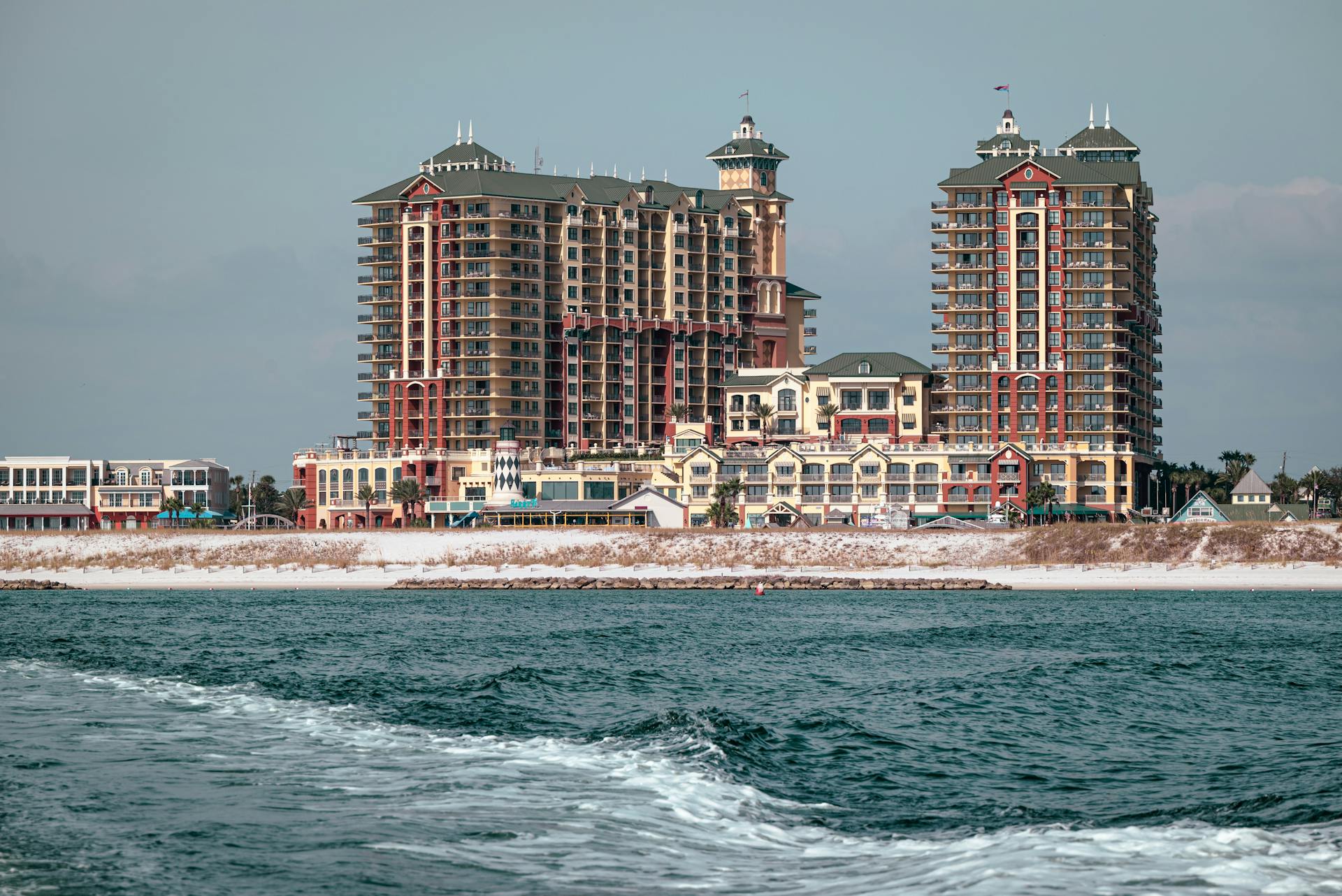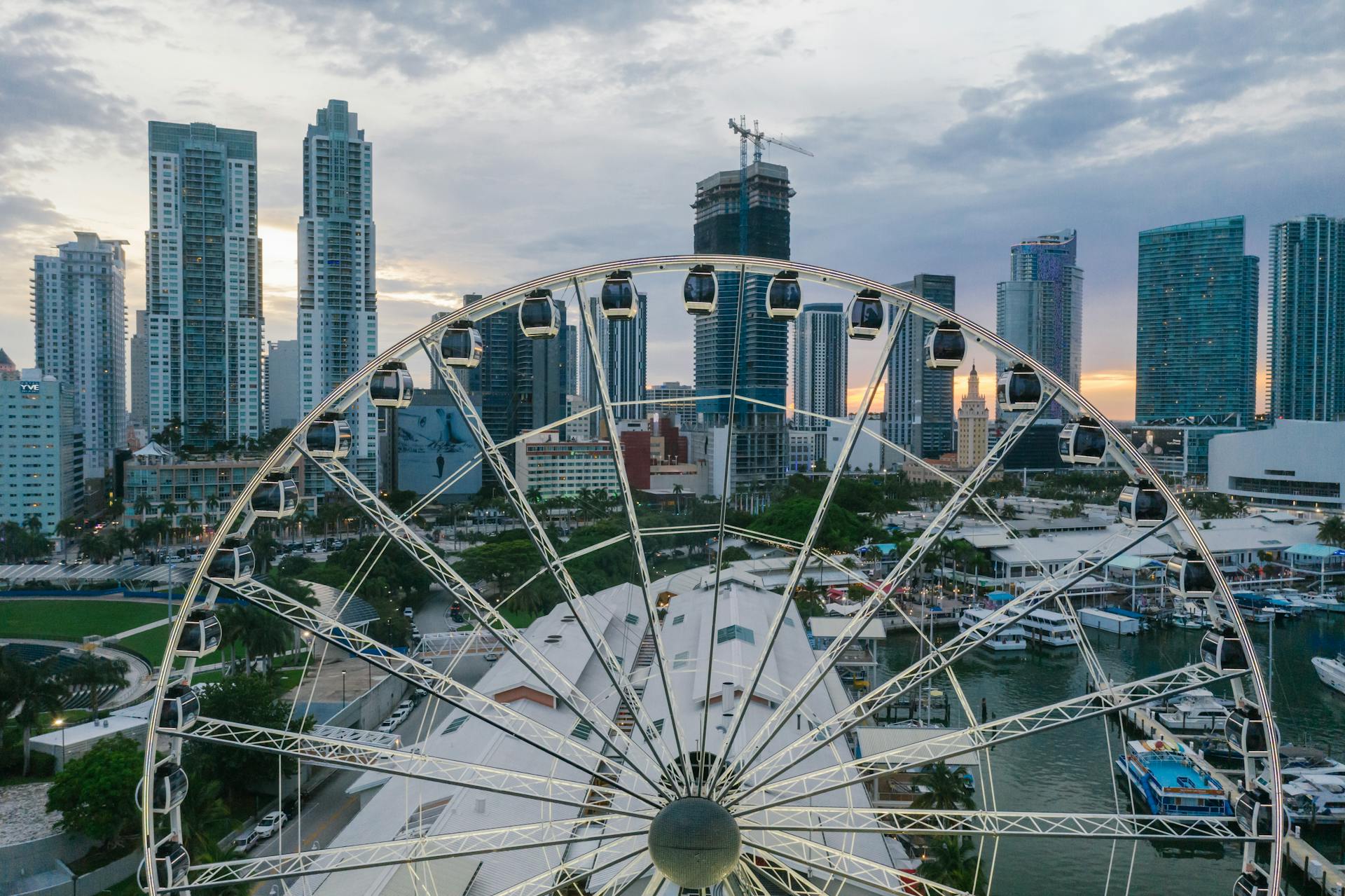
Florida condo insurance increases are a growing concern for homeowners in the state.
According to recent data, the average cost of condo insurance in Florida has risen by over 20% in the past year alone.
Many condo owners are feeling the pinch as their premiums continue to soar.
The main driver of these increases is the rising cost of reinsurance, which is a type of insurance that protects insurance companies from catastrophic losses.
Reinsurance costs have skyrocketed in recent years, leading to higher premiums for condo owners.
In some cases, condo owners are seeing their premiums increase by as much as 50% or more.
A different take: Reinsurance Companies Florida
What Led to Florida's Crisis?
Florida's homeowners insurance crisis is a complex issue with multiple factors contributing to its severity. One major factor is the increasing frequency and severity of natural disasters, such as hurricanes and floods, which have led to a surge in insurance claims.
A survey by Redfin and Zillow reports that 11.9% of homeowners in Florida plan to move in the next year due to climbing insurance rates, compared to just 6.2% of U.S. homeowners who plan to move on the national level.
Curious to learn more? Check out: Medicare Supplement Plan G Deductible 2024
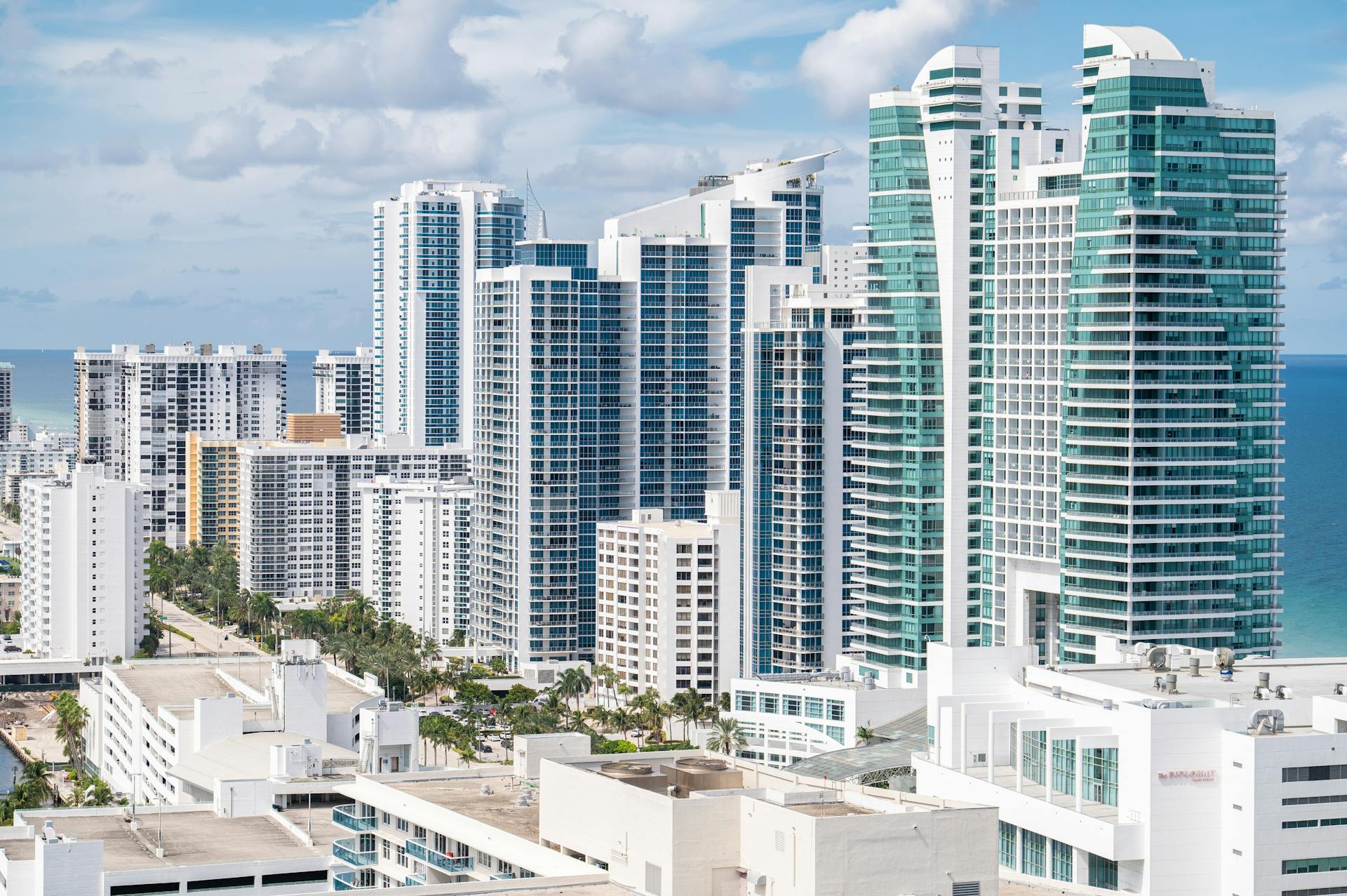
Systemic insurance fraud is another issue plaguing the state's insurance market. Demotech, the rating firm that measures the financial strength and stability of insurance carriers in Florida, has been accused of inflating ratings of Florida home insurance carriers.
In fact, nearly 20% of the companies doing business in Florida that Demotech rated as financially stable went insolvent during the period 2009 to 2022. This has led to a loss of trust in the insurance industry and a decrease in available coverage options.
Inflation and climate change are also contributing factors to the crisis. As the cost of living increases, so do insurance premiums, making it difficult for homeowners to afford coverage. Climate change is also leading to more frequent and severe natural disasters, which in turn drives up insurance costs.
Here are some of the major insurance companies that have pulled back on coverage in Florida:
- Nationwide not renewing some policies in high-risk areas (December 2023)
- Farmers Insurance no longer selling new policies (July 2023)
- AAA not renewing some policies in high-risk areas (July 2023)
- AIG no longer selling or renewing policies (March 2022)
- Progressive no longer selling new policies (April 2022)
These factors have combined to create a perfect storm that has left many Florida homeowners without adequate insurance coverage.
Insurance Rate Hikes

Florida's insurance market is a complex and challenging landscape, and nowhere is this more evident than in the recent insurance rate hikes affecting condo owners.
Insurers are filing double-digit rate increases to help pay for record losses from recent years, with Florida home insurance premiums increasing faster than any other state.
On average, premiums in Florida are up 35% compared to a year ago, and over the two years from May 2021 to May 2023, home insurance rates in Florida were up an average of 68%.
Homeowner and condo owner policy rates are expected to increase by an average of 13.9% and 14.6%, respectively, if approved by the Office of Insurance Regulation.
High insurance costs are being passed on to renters, too, with rentals in storm-vulnerable areas like Lee County running hundreds of dollars higher a month than the national average.
Residential construction costs are up roughly 34% since March 2020 due to ongoing supply chain issues and labor shortages, further complicating matters for Florida homeowners and insurance companies.
In one Tampa Bay community, a condo association's property insurance spiked nearly 1,000%, making it nearly impossible for residents to afford coverage.
If this caught your attention, see: Does Health Insurance Cover Funeral Costs
Impact on Homeowners
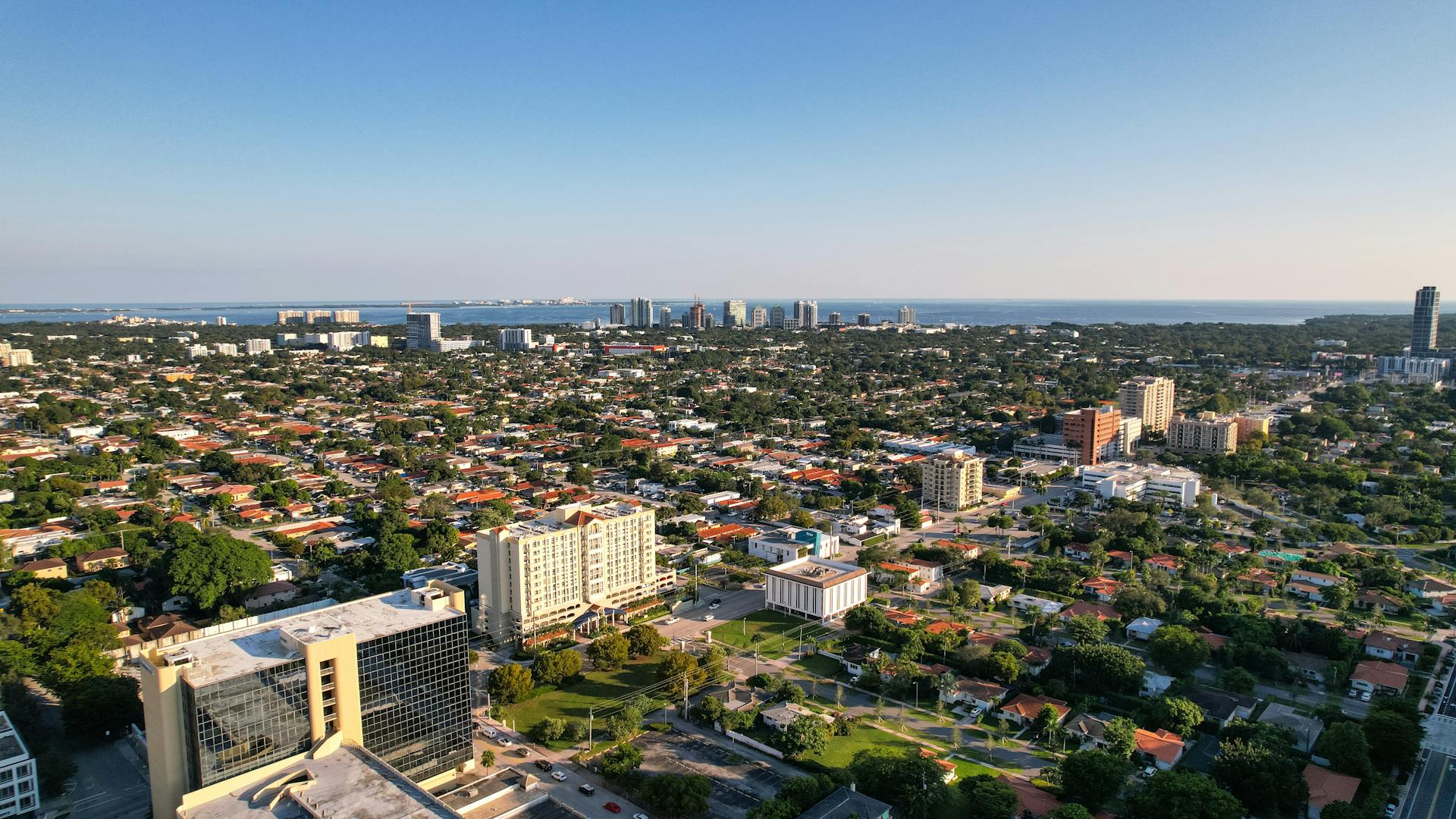
Homeowners in Florida are facing an increase in insurance rates, with an average hike of 13.9% for homeowner policies and 14.6% for condo owners.
These rate increases are expected to take effect on November 1, 2023, for new and renewal policies. This means that homeowners will need to be prepared for higher premiums or explore alternative options.
To mitigate the impact of these rate increases, homeowners can take steps to reduce their risk and make their property more insurable.
A fresh viewpoint: About Indemnity Health Insurance Policies
Homeowners: Cancelled or Nonrenewed Policy Options
If your home insurance is canceled or nonrenewed, contact your insurance agent immediately to find out the reason and see if there are any circumstances under which your policy could be reinstated.
The reason for cancellation or nonrenewal might be related to your home's increased exposure or risk, so it's essential to ask what specifically caused your exposure to increase.
Taking steps to fortify or retrofit your home to prevent expensive wind damage could make your property significantly more insurable, especially if you live in an area of Florida with a high risk of hurricanes.
You can consider upgrading your property or taking additional steps to keep your coverage, such as installing storm shutters or impact-resistant windows.
Readers also liked: Hazard Insurance for Rental Property
Customers Dropping Wind to Save Thousands
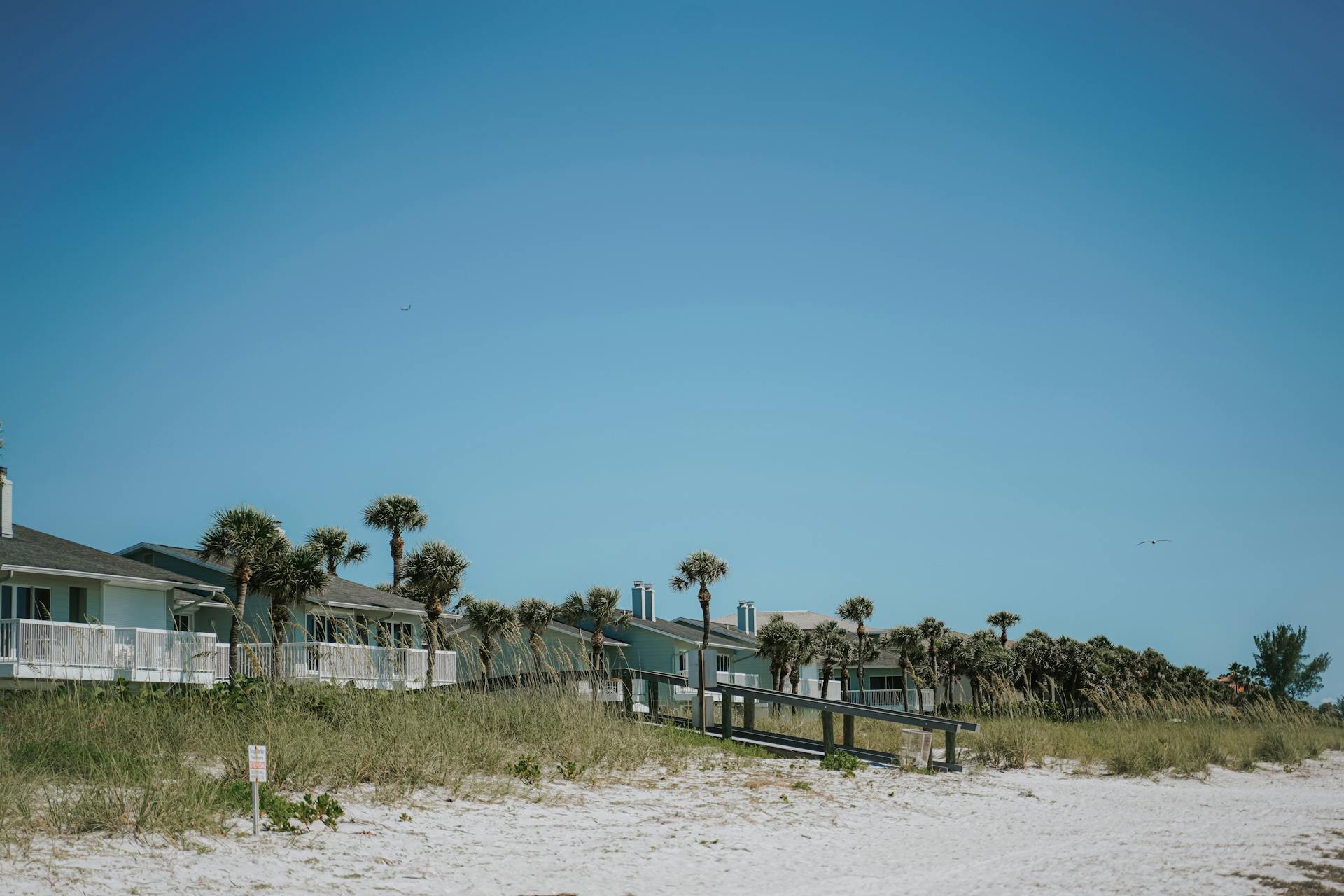
Some homeowners in Florida are choosing to drop wind coverage from their insurance policies to save money, despite the potential risks.
This decision can lead to significant savings, with Maurice Gutierrez saving around $40,000 over five years by dropping wind coverage.
Homeowners who drop wind coverage may still be responsible for covering repair bills if their home is damaged in a hurricane.
The cost of wind coverage has increased significantly for some homeowners, with Maurice Gutierrez's policy doubling in price after Hurricane Ian.
Dropping wind coverage can be a viable option for some homeowners, especially those who are able to save money elsewhere.
Maurice Gutierrez plans to use the money saved to cover repairs and renovations, such as putting a new roof on his home and replacing windows.
Intriguing read: Wind Damage Insurance Claim Florida
Renters Face Rising Costs
Renters in Florida, particularly in areas affected by storms like Hurricane Ian, are facing rising costs due to high insurance premiums.
Rentals in Lee County, the hardest hit area, have surged after the storm, displacing thousands into rental units.
Households with an income of less than $87,000 are considered rent-burdened in this area.
Apartment owners have had to pass on costly property insurance to their renters in the form of higher rent.
Florida's Home Crisis

Florida's Home Crisis is a complex issue with many contributing factors. The state's home insurance market is on the brink of collapse due to a combination of severe natural disasters, systemic insurance fraud, inflation, and climate change.
11.9% of homeowners in Florida plan to move in the next year due to climbing insurance rates, compared to just 6.2% of U.S. homeowners who plan to move on the national level.
Demotech, the rating firm that measures the financial strength and stability of insurance carriers in Florida, has been criticized for inflating ratings of Florida home insurance carriers. Nearly 20% of the companies doing business in Florida that Demotech rated as financially stable went insolvent during the period 2009 to 2022.
Florida Governor Ron DeSantis warned homeowners that Citizens Insurance, the state-backed insurer of last resort, was insolvent. However, economists and insurance experts have ruled that this statement is mostly false.
Here are some of the latest home insurance companies to pull back on coverage in Florida:
- Nationwide: Not renewing some policies in high-risk areas (December 2023)
- Farmers Insurance: No longer selling new policies (July 2023)
- AAA: Not renewing some policies in high-risk areas (July 2023)
- AIG: No longer selling or renewing policies (March 2022)
- Progressive: No longer selling new policies (April 2022)
Florida homeowners can use Policygenius to compare home insurance quotes from several companies, including Citizens, Universal Property, and Slide Insurance.
What Are Legislators Doing?

Legislators in Florida's GOP-led legislature have made it harder for customers to sue their insurance carriers over the past five years. They claim that frivolous lawsuits have artificially inflated insurance policy costs.
The data doesn't entirely back up this claim. Most claimant lawsuits come after carriers delay payment to policyholders, sometimes by over a year.
Carriers' own delays may be triggering these lawsuits. This is a significant issue that needs to be addressed.
Doug Quinn, executive director of the American Policyholder Association, says the real reason for high premiums is mismanagement. Insurance companies don't hold enough cash in reserve to pay out claims.
You might like: Florida Workers Compensation Insurance Carriers
Alternative Solutions
If you're looking for ways to reduce your condo insurance premiums in Florida, there are some alternative solutions you can consider. One option is to raise your deductible, which can help lower your premiums each month, but make sure you have enough in savings to cover the higher out-of-pocket costs.
Another solution is to bundle your condo and auto insurance, which can save you as much as 30% each year. This is a great way to simplify your insurance needs and potentially save some money.
If you're eligible, you can also take advantage of the My Safe Florida Home program, which provides free inspections and home improvement consultations to help you make your condo safer from hurricane damage. This can lead to lower premiums and a safer living space.
Here are some key facts to keep in mind:
By exploring these alternative solutions, you can potentially reduce your condo insurance premiums and find a more affordable option.
Sources
- https://www.cbsnews.com/miami/news/florida-condo-owners-brace-high-costs-reserves-repairs/
- https://www.naplesnews.com/story/news/2024/04/23/five-things-to-know-about-florida-homeowners-insurance-cost-hikes/73425739007/
- https://www.policygenius.com/homeowners-insurance/florida-home-insurance-crisis/
- https://www.wfla.com/8-on-your-side/florida-condo-associations-property-insurance-spiked-nearly-1000-heres-why/
- https://opportunityfl.org/2023/05/11/florida-brace-yourself-for-double-digit-rate-increases-from-citizens-property-insurance/
Featured Images: pexels.com


